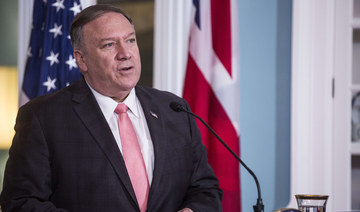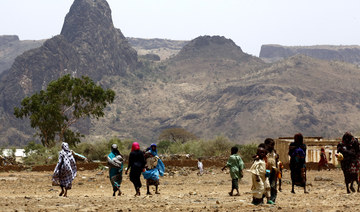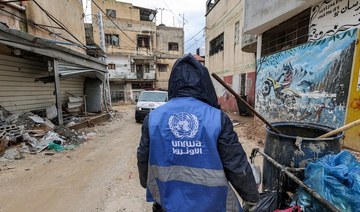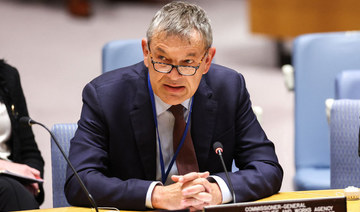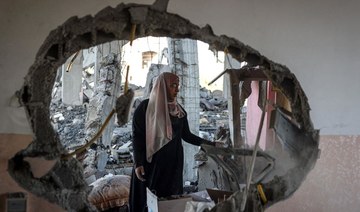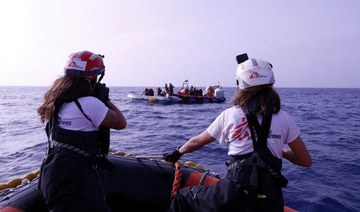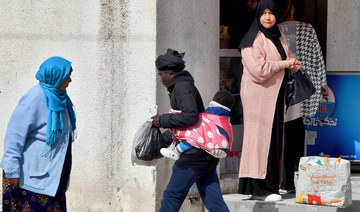KHARTOUM: Sudan's main opposition alliance will nominate Abdalla Hamdok, an economist who has served in international institutions, to be prime minister in the country's transitional government, opposition sources said on Thursday.
The nomination is the first step towards the creation of a transitional government after the overthrow of long-time president Omar Al-Bashir in April following months of unrest.
The development comes after months of political turmoil as negotiations between the Transitional Military Council, which has ruled Sudan since April, and the opposition alliance, known as the Forces of Freedom and Change (FFC), dragged on.
A planned new sovereign council must appoint the prime minister based on a nomination from the FFC, according to a constitutional declaration agreed on earlier this month.
The sovereign council will be formed on Sunday, according to the agreed-upon schedule, after which the Transitional Military Council will be dissolved. The appointment of the prime minister is scheduled to take place on Tuesday.
Hamdok, long rumoured as the FFC's pick, was last working as Deputy Executive Secretary of the UN Economic Commission for Africa, and has held positions at the International Labor Organization and the African Development Bank.
He served as an official in Sudan's Ministry of Finance in the 1980s, before the military coup that put Bashir in power.
The opposition alliance will also nominate former judge and human rights activist Mohamed Alhafiz Mahmoud as public prosecutor, opposition sources said, and Abdelqadir Mohamed Ahmed as head of the judiciary. Their appointment would also be confirmed by the sovereign council after its formation.
The FFC and the Transitional Military Council are expected to put final signatures on the constitutional declaration on Saturday at a ceremony in Khartoum with foreign dignitaries attending.
Some caution it is still too early to tell how events will unfold in the lengthy transition period required to prepare for elections after three decades of autocratic rule under Bashir.
The ceremony will officialise a constitutional declaration inked on August 4 between the country's Transitional Military Council and the opposition coalition of the Alliance for Freedom and Change.
The deal brought an end to nearly eight months of upheaval that saw masses mobilise against the 30-year rule of Omar Al-Bashir, who was eventually ousted in April.
The deal brokered by the African Union and Ethiopia was welcomed with relief by both sides, with protesters celebrating what they saw as the victory of their "revolution" and generals taking credit for averting civil war.
While the compromise meets several of the protest camp's key demands, its terms leave the military with ample powers and its future civilian government with dauting challenges.
With the official signing of the transitional documents on Saturday, Sudan will kick off a process that will include important immediate first steps.
The composition of the new transitional civilian-majority ruling council is due to be announced on Sunday, followed two days later by the naming of a prime minister.
The cabinet is due to be unveiled on August 28, with the newly-appointed ministers due to meet the sovereign council on September 1 for the first time.
Elections must be held after the 39-month transitional period that began on August 4.
Sudan opposition to nominate economist Abdalla Hamdok for prime minister
Sudan opposition to nominate economist Abdalla Hamdok for prime minister
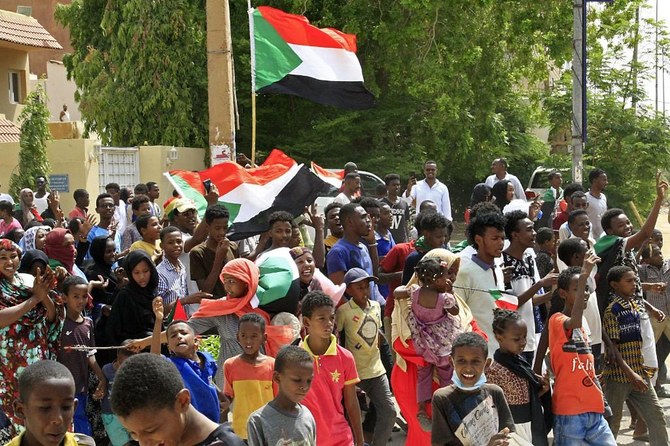
- Sudan's sovereign council, which will be sworn in on Monday, will appoint the prime minister based on the nomination from the opposition alliance, the Forces of Freedom and Change
- Sudan's military rulers and protest leaders on Saturday are scheduled to sign a landmark deal reached after a bloody uprising which is meant to pave the way for civilian rule
Iran threatens to annihilate Israel should it launch a major attack
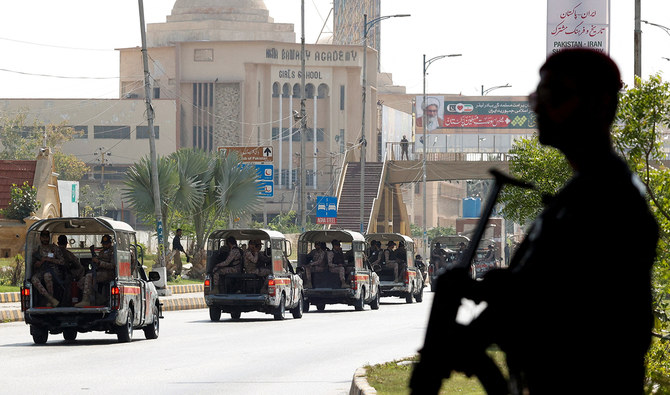
- Explosions were heard over Iran’s Isfahan city Friday in possible Israeli attack
- But Tehran played down the incident and said it had no plans for a retaliation
DUBAI: An Israeli attack on Iranian territory could radically change dynamics and result in there being nothing left of the "Zionist regime", Iran's President Ebrahim Raisi was quoted as saying on Tuesday by the official IRNA news agency.
Raisi began a three day visit to Pakistan on Monday and has vowed to boost trade between the neighbouring nations to $10 billion a year.
The two Muslim neighbours are seeking to mend ties after unprecedented tit-for-tat military strikes this year.
On Friday, explosions were heard over the Iranian city of Isfahan in what sources said was an Israeli attack, but Tehran played down the incident and said it had no plans for retaliation.
Iran launched a barrage of missiles and drones at Israel on April 13 in what it said was retaliation for Israel's suspected deadly strike on its embassy compound in Damascus on April 1, but almost all were shot down.
"The Islamic Republic of Iran will honourably continue to support the Palestinian resistance," Raisi added in the speech in Lahore.
Norway calls on donors to resume funding to Palestinian UNRWA agency
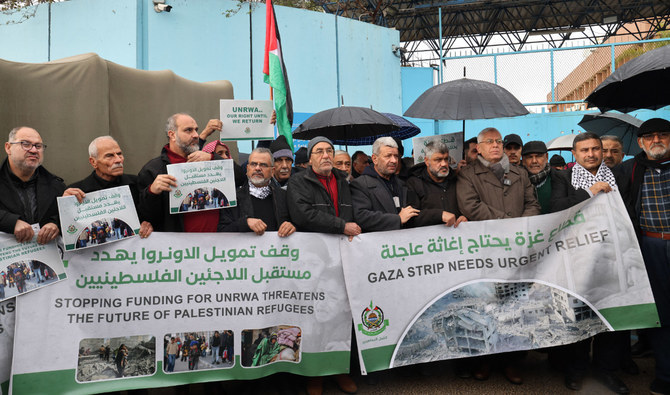
- Norway, also a major donor to the organization, argued that funding cuts put the population of Gaza at risk
- “I would now like to call on countries that have still frozen their contributions to UNRWA to resume funding,” Norway’s foreign minister Espen Barth Eide said
OSLO: Norway called on international donors on Tuesday to resume payments to the UN agency for Palestinians refugees (UNRWA) after a report found Israel had yet to provide evidence that some UNRWA staff were linked to terrorist groups.
The United States, Britain and others earlier this year paused payments to UNRWA following Israel’s claims, while Norway, also a major donor to the organization, argued that funding cuts put the population of Gaza at risk.
A review of the agency’s neutrality led by former French foreign minister Catherine Colonna on Monday concluded Israel had yet to back up its accusations that hundreds of UNRWA staff were operatives in Gaza terrorist groups.
“I would now like to call on countries that have still frozen their contributions to UNRWA to resume funding,” Norway’s foreign minister Espen Barth Eide said in a statement.
A separate investigation by internal UN investigators is looking into Israeli allegations that 12 UNRWA staff took part in the Hamas-led Oct. 7 attacks which triggered the Gaza war.
“Norway has emphasized that it is unacceptable to punish an entire organization, with 30,000 employees, and all Palestine refugees for the alleged misdeeds of a small number of the organization’s employees,” Barth Eide said.
While 10 countries have since ended their suspensions, the United States, Britain, Italy, the Netherlands, Austria and Lithuania have not. A UN spokesperson on Monday said UNRWA currently had enough funding to pay for operations until June.
Jordan thwarts attempt to smuggle 73,500 amphetamine pills at Syrian border

- Agents discovered 35,000 additional Captagon pills hidden aboard a passenger bus also arriving from Syria
AMMAN: The Jordan Customs Department said on Tuesday that it thwarted, in collaboration with security agencies and anti-narcotics forces, two recent smuggling attempts involving 73,500 Captagon pills at the Jaber border crossing.
In the first incident, JCD personnel at the border crossing intercepted an attempt to smuggle 38,500 Captagon pills, Jordan News Agency reported.
The drugs were found concealed on a passenger arriving from Syria. The suspect was subjected to an intensive search, during which the hidden narcotics were discovered.
In a second incident at the same border crossing, agents discovered 35,000 additional Captagon pills hidden aboard a passenger bus also arriving from Syria. The vehicle underwent a thorough search, leading to the seizure of the concealed drugs.
The JCD said that its agents continue to actively work across all Jordanian border customs centers, in cooperation with national security agencies, to prevent the smuggling of narcotics into the country.
The initiative is part of ongoing efforts to safeguard Jordanian citizens and the economy from the impacts of illegal drug trade, it said.
War-torn Syria has become the region’s main site for a multi-billion-dollar drug trade, with Jordan being a key transit route to Gulf states for the amphetamine known as Captagon.
Most of the world’s Captagon is made in Syria.
Palestinian film director aims for ‘different image’ of Gaza
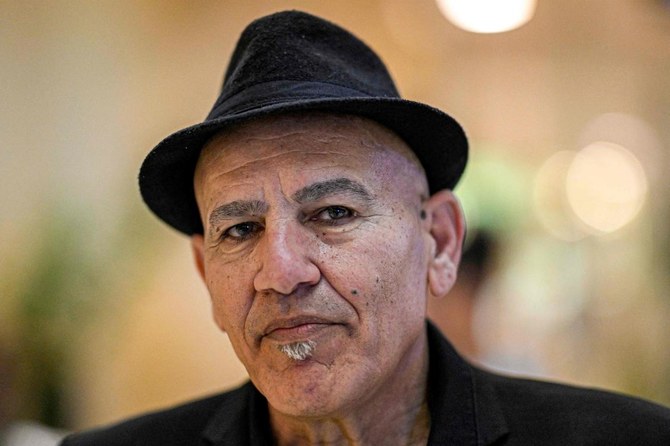
- Against the backdrop of the war in the Gaza Strip, the festival in southern Egypt decided to screen six Palestinian short films in the competition
- This was despite many voices in the Arab world calling for the suspension of all artistic and cultural activities in solidarity with Palestinians
ASWAN, Egypt: Palestinian director Rashid Masharawi wants to “export a different cinematic image of Gaza,” now ravaged by war, as he presides over the jury at the eighth Aswan International Women Film Festival themed on “resistance cinema.”
Against the backdrop of the war in the Gaza Strip, the festival in southern Egypt decided to screen six Palestinian short films in the competition, which brings together filmmakers from across the region.
This was despite many voices in the Arab world calling for the suspension of all artistic and cultural activities in solidarity with Palestinians.
Masharawi is known internationally for being the first Palestinian director to be in the official selection at the Cannes Film Festival when his film “Haifa” was included in 1996.
Born in the Gaza Strip to refugees from the port city of Jaffa, the director now lives in Ramallah in the occupied West Bank.
He said he “does not consider art and cinema as purely entertainment.”
“If film festivals do not play their role when major disasters occur, as with what is currently happening in Palestine, then why do they exist?” he asked.
Among the six Palestinian films included at Aswan is the 14-minute documentary film “Threads of Silk” by director Walaa Saadah, who was killed last month in the war. The film looks at the meanings of the embroidery on the Palestinian “thawb” robe.
Another is the five-minute film “I am from Palestine” by the director Iman Al-Dhawahari, about a Palestinian-American girl in the United States who is shocked at school to see a map of the world without her country.
The 16-minute documentary film “A Cut Off Future” from director Alia Ardoghli discusses the daily experiences of 27 girls between the ages of 11 and 17 in the shadow of the Israeli occupation.
In his newest film, for which work is ongoing, Masharawi said he wanted to expose what he called “the lie of self-defense.”
“The occupation (Israel) blew up the studio of an artist in Gaza with paintings and statues. Where is self-defense when one kills artists and intellectuals while calling them terrorists?” the 62-year-old told AFP.
The conflict in Gaza erupted with the unprecedented October 7 Hamas attack on Israel which resulted in the death of at least 1,170 people, mostly civilians, according to an AFP tally based on official Israeli figures.
In retaliation, Israel launched a bombing campaign and ground offensive in Gaza aimed at destroying Hamas that has killed at least 34,183 people, the majority women and children, according to the health ministry in the Hamas-run territory.
Two months after the beginning of the war, Masharawi began a new project: a support fund for cinema in the besieged coastal strip.
The initiative “Films from Distance Zero” supports Gazan filmmakers living “under the bombing or becoming refugees” to produce their films.
Female filmmakers are active in the project, about whom Masharawi said, “always in the most difficult moments, we find the Palestinian woman on the front line.”
Around 2.4 million Palestinians live in the Gaza Strip, which has been under a blockade since Hamas came to power in 2007.
Theatres in Gaza closed at the end of the 1980s during the Palestinian uprising against Israel known as the First Intifada, but reopened after the creation of the Palestinian Authority in the 1990s.
Hamas control changed all that, with the political Islamist movement considering film contrary to the values of Islam.
Nevertheless, last year an open-air film festival took place, “taking into account the customs and traditions of the territory,” a Hamas official said at the time.
For Masharawi, now more than ever, it is necessary to support cinema and have “a different cinematic image of Gaza” reach the world to “make the truth prevail in the face of the lies of the Israeli occupation.”
At the heart of Masharawi’s work is identity. “It is difficult (for Israel) to occupy our memories, our identities, our music, our history and our culture,” he said.
Israel “is wasting a lot of time on a project doomed to failure and which will kill many of us,” he said, referring to the war in Gaza.
Masharawi said he thought the solidarity of the Arab public with the Palestinian people, “and I mean the people and not their leaderships,” might come “from their powerlessness and the restrictions of their (government) systems.”
He added, “I used to dream that the Arab governments would be like their people, but I say it clearly: this has not happened, even after we have come close to 200 days of war.”
Egypt’s foreign minister holds talks with director general of migration organization
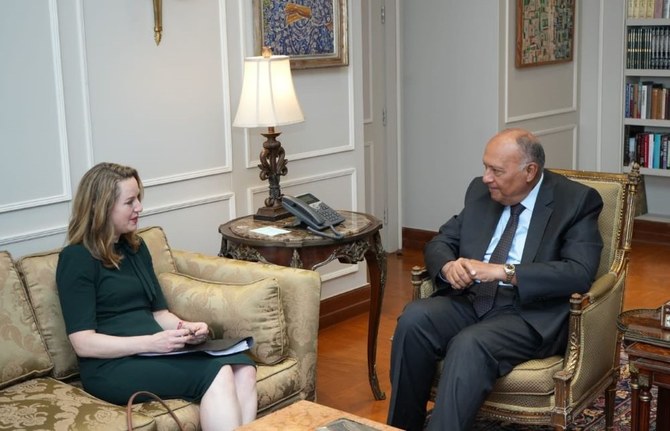
- Parties look at ways to support the Loss and Damage Fund
- Sameh Shoukry affirmed Egypt’s backing to adopt a comprehensive approach to migration governance
CAIRO: Egypt’s Minister of Foreign Affairs Sameh Shoukry held talks with the Director General of the International Organization for Migration Amy Pope during the UN official’s visit.
Shoukry expressed his appreciation of the organization’s cooperation, and spoke of aims to further relations to ensure comprehensive management of migration in a manner that contributed to achieving sustainable development in accordance with the principles and goals enshrined in the Global Compact for Migration. This stressed the importance of crystallizing the organization’s action priorities in consultation with developing countries’ governments.
He affirmed Egypt’s backing to adopt a comprehensive approach to migration governance so that it was not limited to security aspects only, but also took into account the development aspects associated with them, while addressing the root causes that lead to illegal immigration.
The minister also praised existing cooperation with the IOM in promoting ways of legal labor mobility and bridging the existing gaps in labor markets, thus achieving the interests of origin and destination states and migrants alike.
Shoukry noted that Egypt was facing increasing flows of migrants forced to flee their countries in pursuit of stability as a result of conflicts, economic reasons, or the repercussions of climate change, which had been clearly reflected in the sharp increase in the numbers of immigrants to Egypt.
He said that the support that Egypt receives from the international community was not commensurate with the burdens it bears to provide a decent life for those arriving, especially since the phenomenon had coincided with a period in which the Egyptian economy had suffered from the consequences of global crises, which had necessitated the organization to play its role in providing necessary support.
Pope thanked Egypt for its fruitful cooperation on issues involving the impact of climate change on migration, especially during Egypt’s presidency of COP27.
The parties also looked at ways to support and operationalize the Loss and Damage Fund and its important role in enhancing the ability of states to review the devastating effects of climate change and the impact on migration flows. They also spoke of cooperation between Egypt and the IOM in Africa.
Ministry of Foreign Affairs spokesperson Ahmed Abu Zeid said the meeting also looked at developments taking place in the region, with Shoukry and Pope discussing the situation in Gaza, and providing humanitarian aid and safe havens to shelter the displaced.
In connection with developments in Sudan, Pope spoke of her appreciation of Egypt’s reception of a large number of displaced Sudanese nationals since the beginning of the crisis, as well as the Egyptian authorities’ role in providing support to those fleeing the conflict, and meeting their needs.
The UN official expressed the IOM’s readiness to provide support for Egypt in order to enhance its ability to care for Sudanese refugees, in cooperation with the relevant ministries, noting that the organization attached importance to Sudan for fear of it turning into a forgotten crisis.



